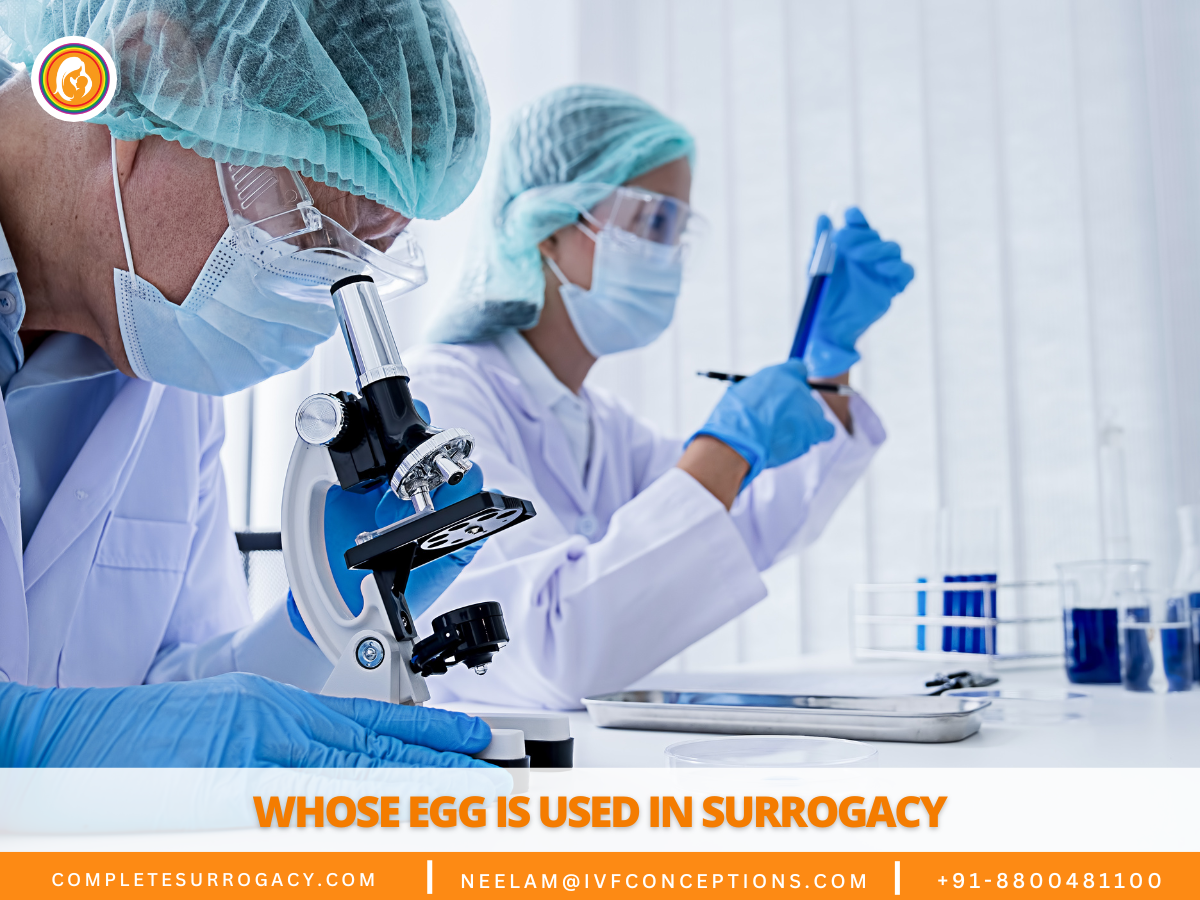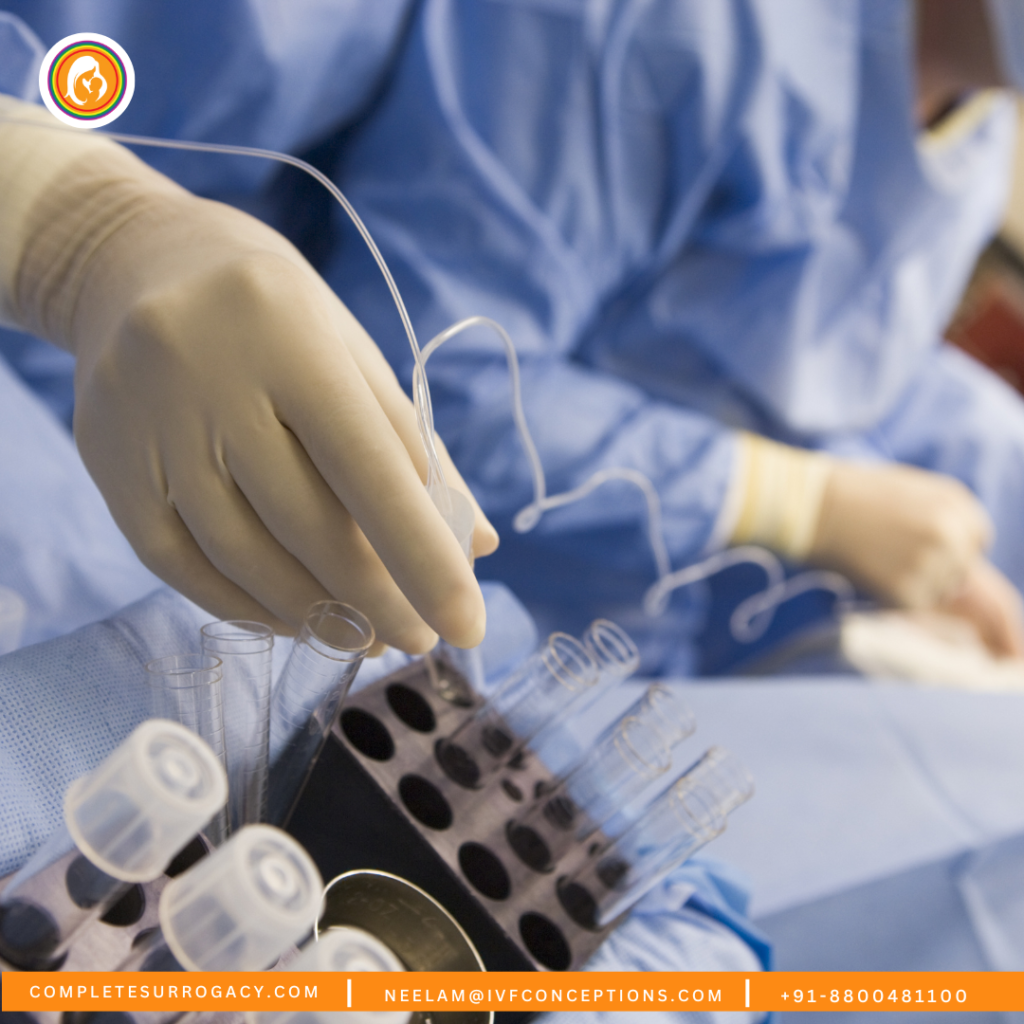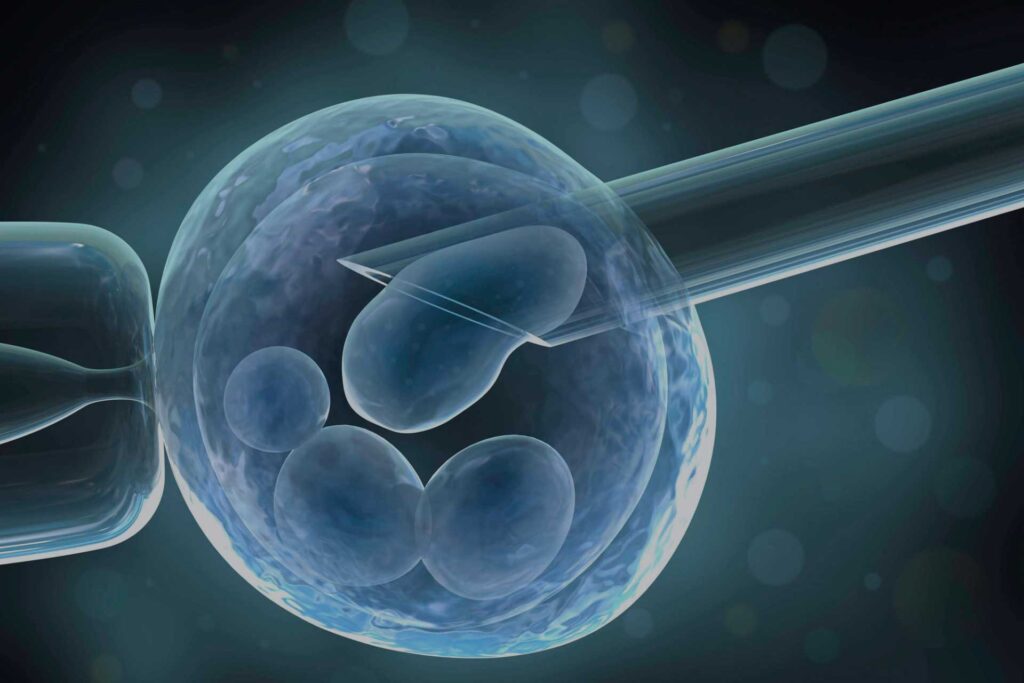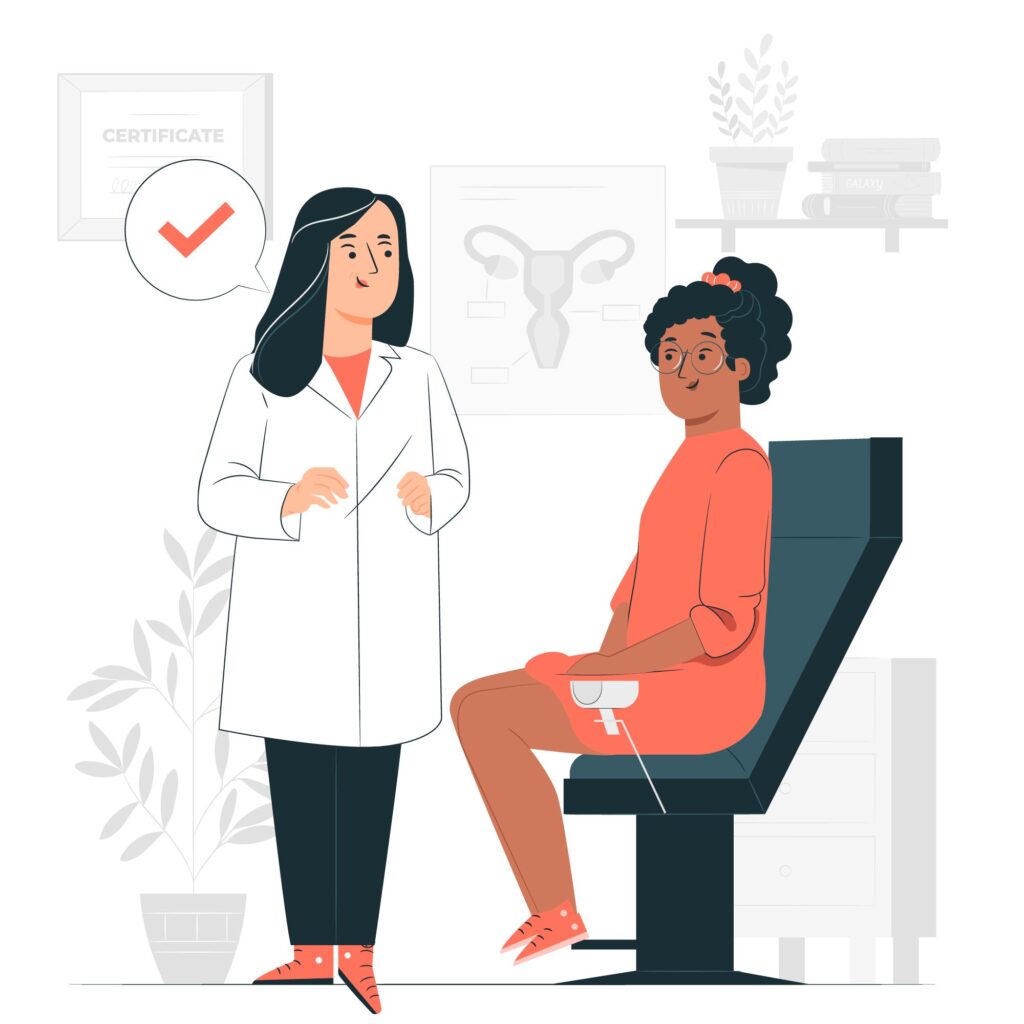Whose Egg is Used in Surrogacy

Ever thought about how choosing whose egg is used in surrogacy changes family and genetics? In surrogacy, knowing your egg options is key. It deeply affects the future of the intended parents and the surrogate. This article will dive into the details of surrogacy egg donation.
We’ll look at traditional and gestational surrogacy and what they mean. With this info, you can move forward in this journey with confidence and clarity.
Get in touch for a Free Surrogacy Consultancy:
📲 91-8800481100 ( WhatsApp, Line, Viber)
Key Takeaways
- Gestational surrogacy is the most popular type, primarily using In Vitro Fertilization (IVF).
- The intended mother’s eggs can allow her to share a biological connection with the child.
- Donor eggs are often chosen for various personal and medical reasons, including age and fertility issues.
- Traditional surrogacy may present emotional and legal challenges due to genetic ties.
- Understanding the different types of surrogacy aids in making informed decisions.
Additional guide for intended parents:
How Much Does Surrogacy Cost in Argentina
Introduction to Surrogacy and Egg Sources
It’s key for intended parents to know the different surrogacy options. Surrogacy can be traditional or gestational. Traditional surrogacy uses the surrogate’s eggs, creating a genetic link. Gestational surrogacy uses the intended mother’s or a donor’s eggs, with no genetic link to the surrogate.

Understanding Surrogacy Options
Each surrogacy choice has its own emotional and legal aspects. People must think about their personal needs, like wanting a genetic link. About 750 babies are born each year in the U.S. through gestational surrogacy. This method is often chosen because it’s simpler legally than traditional surrogacy.
Importance of Egg Source in Surrogacy
The egg source choice affects the emotional and practical sides of surrogacy. Some parents want to use their own eggs for a genetic link. Others might choose donor eggs to avoid health or genetic issues. It’s important to weigh these options carefully, including the need for medical checks on the surrogate. Understanding these choices helps parents make decisions that match their dreams.
Using the Intended Mother’s Eggs
Using the intended mother’s eggs is a big choice in gestational surrogacy. It creates a biological link between the mother and child. This makes the surrogacy journey more emotionally fulfilling. It’s important for intended parents to know the benefits of this choice.
Advantages of Using the Intended Mother’s Eggs
There are many benefits to using the intended mother’s eggs. Here are a few:
- Biological connection: The child will have half of the mother’s DNA. This can lead to similarities in looks and traits.
- Emotional fulfillment: This connection can make the mother feel closer to her child. It adds to the emotional journey of surrogacy.
- Control over genetic factors: The intended parents can choose the genetic health and traits of their child.
The Process of Egg Retrieval for Surrogacy
The egg retrieval process for surrogacy involves several steps:
- Ovarian stimulation: Hormones are used to make the ovaries produce many eggs.
- Monitoring: Ultrasound checks are done regularly to see how the eggs are growing.
- Surgical retrieval: When the eggs are ready, a small surgery is done. This is usually done under sedation to get the eggs.
After getting the eggs, they are fertilized with the intended father’s sperm or donor sperm. This creates embryos. Using the intended mother’s eggs is key in the emotional journey of surrogacy. It brings hope and connection to many families.
Using Donor Eggs for Surrogacy
Choosing donor eggs for surrogacy is a common choice for many. It’s often picked when the intended mother faces egg issues due to age or health. This option lets couples, including single men and same-sex couples, have a biological link. The emotional and biological sides of this choice are big.

Reasons to Choose Donor Eggs
There are several reasons to use donor eggs in surrogacy:
- Advanced maternal age or medical conditions may hinder the intended mother’s ability to produce viable eggs.
- Donor eggs provide a pathway to parenthood for couples who might have otherwise limited options.
- Egg donation in surrogacy ensures a genetic link through sperm, maintaining a familial connection.
- Availability of donor eggs, with many agencies and fertility clinics facilitating the process.
Finding the Right Egg Donor
Finding the right egg donor is key. It can shape the whole surrogacy journey. Here are important things to consider:
- Working with reputable fertility clinics or agencies specialized in egg donation programs.
- Understanding whether to choose an anonymous or known egg donor, as this choice may affect emotional dynamics.
- Evaluating the qualifications and health history of potential egg donors to ensure suitability.
- Considering the costs associated with donor eggs, including medical procedures and donor compensation.
Donor eggs for surrogacy offer a hopeful path for parents to start a family. Making this choice carefully ensures it fits with personal values and family dreams.
Whose Egg is Used in Surrogacy? Exploring the Types and Their Implications
It’s important to know whose egg is used in surrogacy. This affects both the intended parents and the surrogate mother. There are two main types: traditional and gestational surrogacy. Each has its own emotional and legal implications.
Traditional Surrogacy: The Surrogate’s Eggs
In traditional surrogacy, the surrogate mother uses her own eggs. This creates a genetic link between her and the child. It can lead to emotional and legal challenges, especially regarding parental rights.
These issues can cause attachment problems for both the surrogate and the intended parents. Because of these complexities, traditional surrogacy is less common today.
Gestational Surrogacy: No Genetic Connection
Gestational surrogacy doesn’t involve a genetic link between the surrogate and the child. The embryos come from the intended parents or donors. This makes it simpler emotionally and legally.
It’s crucial to have clear legal agreements about parental rights. This ensures everyone’s rights are protected. Gestational surrogacy is often preferred for its straightforward approach to parental involvement.
Legal Considerations in Egg Source Selection
The legality of surrogacy is key when choosing egg sources. Laws vary by state and country. Before starting, intended parents should get legal advice, as most do.
Legal frameworks help protect everyone’s rights. They clarify the egg source and safeguard the interests of the surrogate and intended parents.
Cost of IVF Egg Donor Surrogacy
Understanding the cost of IVF egg donor surrogacy is complex. It involves many factors and requires careful planning. The total cost can range from $100,000 to $250,000. Knowing the different costs is key for those planning to become parents.

Surrogacy Cost with Breakdown
Surrogacy costs include several key areas. Let’s break down the main expenses:
| Cost Item | Estimated Surrogacy Cost |
| Retainer Fee | $25,000 |
| Egg Donor Fees | $20,000 – $30,000 |
| IVF Procedures | $10,000 – $15,000 |
| Surrogate Compensation | $30,000 – $60,000 |
| Legal Fees | $5,000 – $15,000 |
| Agency Fees | $15,000 – $30,000 |
| Insurance Costs | $10,000 – $30,000 |
| Embryo Creation Costs | $20,000 – $30,000 |
Egg Donor Surrogacy Cost
The cost of egg donor surrogacy is a big part of the budget. Egg donor fees can be between $20,000 and $50,000. These costs are a big part of the total surrogacy expenses.
IVF Egg Donor Surrogacy Cost
The total cost for IVF egg donor surrogacy is usually between $200,000 and $250,000. This includes medical procedures, compensation, and legal fees. Knowing these costs helps in making informed decisions during the surrogacy process.
Choosing Between the Intended Mother’s Egg and an Egg Donor’s Egg in Surrogacy
When pursuing gestational surrogacy, the intended parents must decide whose egg to use—either the intended mother’s egg or an egg donor’s egg. This decision depends on fertility health, medical conditions, and personal preferences.
Comparison: Intended Mother’s Egg vs. Egg Donor’s Egg
| Factor | Intended Mother’s Egg | Egg Donor’s Egg |
| Genetic Connection | The baby is biologically related to the intended mother and father (or sperm donor). | The baby is genetically related to the egg donor, not the intended mother. |
| Fertility Requirements | The intended mother must have healthy ovarian reserve, egg quality, and hormone levels. | Suitable for cases where the intended mother has low egg quality, poor ovarian function, or genetic risks. |
| Medical Suitability | Works if the intended mother has healthy eggs but cannot carry a pregnancy. | Ideal for women with premature ovarian failure, menopause, or high-risk genetic disorders. |
| Age Consideration | Most successful for women under 35 years. Fertility declines with age. | Best for women over 40, as younger egg donors provide higher-quality eggs. |
| Egg Retrieval Process | Requires ovarian stimulation and egg retrieval via IVF. Can be physically and emotionally demanding. | No medical procedure required for the intended mother. The egg donor undergoes stimulation and retrieval. |
| Success Rate | Lower if the intended mother has poor egg quality or fertility issues. | Higher because young, healthy egg donors are selected based on fertility potential. |
| Cost | Lower cost if the intended mother provides her own eggs. | Higher cost due to egg donor compensation, screening, and retrieval expenses. |
| Legal & Ethical Considerations | No third-party involvement; only intended parents have legal rights over the embryo. | Requires legal agreements between the intended parents and the egg donor. Some donors may remain anonymous. |
When Should Intended Parents Consider an Egg Donor?
✅ Choose an Egg Donor if:
- The intended mother has poor egg quality or is over 40.
- She has a genetic disorder that could be passed on to the baby.
- She has undergone chemotherapy, radiation, or early menopause.
- Previous IVF cycles have failed due to poor embryo quality.
- A single intended father or same-sex male couple is pursuing surrogacy.
✅ Use the Intended Mother’s Eggs if:
- She has healthy ovarian reserve and can produce good-quality eggs.
- She wants a biological connection with the baby.
- She has undergone successful IVF before.
Making the Right Choice
- Consult a fertility specialist to assess egg quality and reproductive health.
- Consider embryo testing (PGT-A/PGS) to check for genetic abnormalities.
- Discuss legal aspects if using an egg donor (contracts, anonymity, rights).
- Weigh emotional factors—genetic connection vs. higher success rates with donor eggs.
Additional guide for intended parents:
How Much Does Surrogacy Cost in India
How Much Does Surrogacy Cost In Kazakhstan
Conclusion
Surrogacy is a way for people to become parents, even when they can’t carry a baby themselves. It’s important to know the options for whose egg is used. Each choice affects everyone involved, bringing both joy and challenges.
Having a good agency and lawyer helps a lot. They make sure everything is done right, from picking an egg source to signing legal papers. Studies show that surrogacy families often have strong bonds, but there are still hurdles to overcome.
If you’re thinking about surrogacy, learning as much as you can is key. Talking to experts and getting advice can help you make the best choices. This way, the journey can be fulfilling for everyone involved.
We are happy to assist you with one of our global surrogacy programs best suited you your personal, financial,, and legal needs. I am here to assist you every step of the way.
Get in touch for a Free Surrogacy Consultancy:
📲 91-8800481100 ( WhatsApp, Line, Viber)
FAQs for whose egg used for in surrogacy process
Whose egg is used in surrogacy?
In surrogacy, eggs can come from the intended mother or a donor. For gestational surrogacy, the surrogate carries embryos made from the intended mother’s eggs or donor eggs. This means there’s no genetic link to the surrogate.
What is the difference between traditional and gestational surrogacy?
Traditional surrogacy uses the surrogate’s own eggs, making her the genetic mother. Gestational surrogacy, on the other hand, uses the intended mother’s eggs or donor eggs. This way, there’s no genetic link between the surrogate and the baby.
How is egg retrieval conducted for surrogacy?
Egg retrieval starts with ovarian stimulation to produce many eggs. Then, there’s monitoring and a minor surgery to collect the eggs. This is done under sedation to make the intended mother or egg donor comfortable.
What are the legal considerations in surrogacy?
Legal agreements are key in surrogacy. They outline the rights of the intended parents and the surrogate’s relinquishment of rights. These agreements clarify relationships and protections, especially regarding genetic connections and parental duties.
What are the costs associated with surrogacy?
Surrogacy costs can be high, including fees for donors, IVF, surrogate compensation, and legal fees. Overall, it can cost over $100,000. Donor egg fees alone can range from $20,000 to $50,000.
How do I find the right egg donor?
Finding the right egg donor involves working with specialized agencies or fertility clinics. Intended parents can choose between known or anonymous donors. This choice can affect emotional factors during the surrogacy process.
What are the advantages of using the intended mother’s eggs in surrogacy?
Using the intended mother’s eggs creates a biological connection to the child. This allows for shared DNA and potential familial resemblance. It meets emotional desires, even if she can’t carry the pregnancy.
What are the emotional implications of traditional surrogacy?
Traditional surrogacy can lead to complex emotional challenges. Issues like parental rights and attachment can arise since the surrogate is genetically related. This is why gestational surrogacy is more common today.
What is the surrogacy egg donation process?
The egg donation process in surrogacy includes screening and matching donors, legal agreements, and successful egg retrieval. It’s important to choose a compatible donor for emotional and genetic reasons.
Source Links
- https://en.wikipedia.org/wiki/Surrogacy – Surrogacy
- https://www.webmd.com/infertility-and-reproduction/using-surrogate-mother – What Is Surrogacy and How Does It Work?
- https://www.infertile.com/fertility-treatments/egg-donation-gestational-surrogacy/ – Donor Eggs & Gestational Surrogacy – The Infertility Center of St. Louis

Author Bio: Neelam Chhagani is an International Surrogacy Expert with 15 years of experience in the fertility and surrogacy domain. As the founder of IVF Conceptions and Complete Surrogacy, she has guided over 4,000 intended parents worldwide on their surrogacy journey to parenthood. Recognized as a trusted authority, she specializes in holistic infertility solutions and third-party reproduction consulting.
Holding an MA in Counselling Psychology and a PGD in Mental Health, Neelam is a proud member of the European Fertility Society (EFS) and the European Society of Human Reproduction and Embryology (ESHRE). She is also a leading surrogacy blogger, providing valuable insights into ethical and practical surrogacy solutions.
Since 2010, committed to supporting ALL family types, Neelam has been passionate about helping intended parents grow their families with compassion, integrity, and a focus on secure and affordable surrogacy options Globally.
Learn more about Neelam:
https://www.ivfconceptions.com/neelam-chhagani-surrogacy-consultant/
https://www.linkedin.com/in/neelam-chhagani-92892229/
https://www.quora.com/profile/Neelam-Chhagani















I was introduced to Neelam by a friend who worked with Neelam for surrogacy. Neelam is absolutely wonderful. I am a single male and the journey to fatherhood is not that easy. Neelam connected me to a program ideal for my circumstances. She was with me throughout the pregnancy providing advice and guidance along the way. I am so grateful I found her and am thrilled today that I have a beautiful daughter. I highly recommend Neelam to anyone who is on a journey to become a parent. Having a child has changed my world for the better. I wish others success with their own journey and recommend you connect with Neelam to find a path that is best for you.
SA (USA)